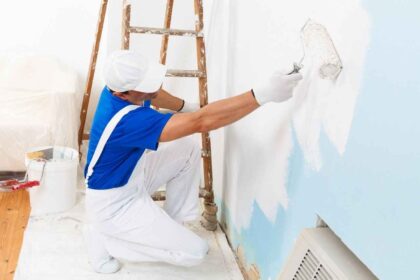Dead animal removal is an essential service that many homeowners overlook until the problem becomes a major issue. Whether it’s a small rodent in the attic or a larger animal like a raccoon in the basement, ignoring the presence of a deceased animal in your home can lead to significant problems. From health risks to structural damage, the impact of leaving a dead animal behind can be far-reaching.
In this post, we will explore the top five risks of ignoring dead animal removal and why it’s important to act quickly when faced with this situation.
1. Health Hazards and Disease Transmission
One of the most pressing risks of ignoring dead animal removal is the potential for health hazards. As animals decompose, they release bacteria, viruses, and other pathogens that can contaminate the surrounding air and surfaces. These harmful microorganisms pose serious health risks to humans and pets living in the home.
Dead animals, especially rodents, are known carriers of diseases such as leptospirosis, hantavirus, and salmonella. Additionally, the decomposition process can attract various pests, including flies, maggots, and cockroaches, which further exacerbate the health risks. These pests can spread bacteria and other harmful agents to other parts of the home, leading to contamination of food, water, and living spaces.
If the dead animal is in a hidden area, such as inside the walls or attic, the air can become stagnant, and harmful gases like ammonia may accumulate, causing respiratory problems. This can be especially dangerous for children, elderly individuals, and anyone with a compromised immune system. Removing the animal promptly and disinfecting the area is critical to maintaining a healthy living environment.
2. Foul Odors and Poor Indoor Air Quality
The odor caused by a decaying animal can be unbearable. As a dead animal breaks down, it emits a strong, foul smell that can permeate the entire home. The scent will continue to linger as long as the body remains, and it may become more potent as the decomposition progresses.
If the animal is hidden in an inaccessible area, such as inside the walls, attic, or crawl space, the odor can spread to multiple rooms in the house, making it difficult to find the source. This unpleasant smell can affect the quality of indoor air, making it uncomfortable to breathe.
In addition to the odor itself, dead animals attract bacteria, mold, and mildew, which can further degrade the indoor air quality. Mold growth can lead to respiratory issues and other health problems, making it even more important to deal with dead animal removal as soon as possible.
3. Attracting Other Pests and Predators
Another significant risk of leaving a dead animal in your home is the attraction of other pests and predators. As mentioned earlier, decomposing animals attract scavengers like flies, ants, and cockroaches. However, they can also attract larger predators such as raccoons, foxes, and stray dogs, all of which might attempt to enter your home in search of food.
These predators may cause damage to your property as they try to gain access, ripping apart insulation, wires, or roofing materials. In addition to the damage they cause, they can introduce more harmful diseases and parasites, including ticks, fleas, and mites.
By taking immediate action to remove the dead animal, you can prevent these unwanted visitors from finding a source of food in your home and potentially causing further damage or contamination.
4. Structural Damage and Contamination
Dead animals often hide in places that are difficult to access, such as within walls, attics, crawl spaces, or under the floors. As the body decomposes, fluids are released, which can seep into insulation, wooden beams, drywall, and other building materials. This moisture and decay can cause long-term structural damage if left unchecked.
Over time, the decomposing body can cause rotting wood, rusting metal, and the weakening of insulation and wiring, all of which can compromise the integrity of your home. This can lead to costly repairs, especially if the damage is extensive and affects critical areas such as plumbing, electrical systems, or the foundation.
Moreover, the fluids released during decomposition can contaminate your air ducts, leading to the spread of bacteria and unpleasant odors throughout your home. This contamination can increase the risk of respiratory issues and allergies, making the need for dead animal removal even more urgent.
5. Fire Hazard from Decomposing Animals Near Electrical Wiring
If a dead animal is located near electrical wiring or other electrical components, the decomposition process can create a significant fire hazard. The decaying body can emit flammable gases, which, when combined with the heat produced by electrical equipment, can increase the risk of a fire breaking out.
Additionally, animals such as rodents are notorious for chewing on electrical wires. In some cases, a dead animal might be in close proximity to a damaged wire that could short-circuit or spark. The combination of these factors could lead to an electrical fire, endangering not only your home but also your family’s safety.
Why Dead Animal Removal Is Crucial
The risks associated with ignoring dead animal removal are not just confined to the health hazards and unpleasant odors; they extend to long-term structural damage and even the potential for fires. Ignoring a dead animal in your home can lead to expensive repairs, health complications, and a significant decline in your home’s overall safety and comfort.
Professional dead animal removal services are essential to ensure that the animal is safely removed and the area is properly cleaned and disinfected. These experts use specialized tools and techniques to locate and extract the animal, even from hard-to-reach spaces, and can help mitigate the risks of contamination and damage.
A quick response to dead animal removal can save you from costly repairs and long-term health issues. If you notice a foul odor, hear unusual sounds in your walls, or suspect that an animal has died on your property, it’s important to contact a professional service immediately.
Conclusion
Dead animal removal may not be at the top of your priority list, but ignoring it can lead to serious consequences. The health risks, unpleasant odors, attraction of other pests, structural damage, and potential fire hazards are just some of the dangers you face by leaving a dead animal in your home. Prompt removal and proper sanitation are crucial to maintaining a safe and healthy living environment.
If you suspect that there is a dead animal in your home, don’t wait. Call a professional dead animal removal service to handle the situation before it becomes a bigger problem. It’s better to act quickly and take preventative measures to avoid the costly and potentially dangerous consequences of ignoring this critical issue.

